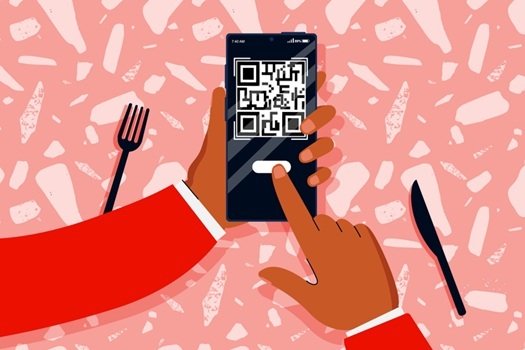The drinking age in France has been a topic of interest for many tourists and citizens alike. Known for its rich wine culture, historical vineyards, and sophisticated culinary traditions, France is one of the top destinations for wine and spirits enthusiasts. Whether you’re a local or a visitor, it’s essential to understand the regulations surrounding alcohol consumption in the country. In this article, we will explore the legal drinking age in France, the history behind it, how it compares to other countries, and how these regulations are applied in daily life.
What is the Legal Drinking Age in France?
The drinking age in France is primarily set at 18 years old. This means that individuals who are 18 or older are legally allowed to purchase and consume alcohol, including beer, wine, and spirits. However, there are some important nuances to understand about the regulations governing alcohol consumption in the country.
In general, the age limit for purchasing beer and wine is 18, while the drinking age for spirits (hard liquor) also falls under this regulation. While the age of 18 is the threshold for public consumption and purchasing, it’s worth noting that in some regions or specific situations, such as private events or festivals, different rules may apply. These exceptions usually depend on the discretion of local authorities.
Historical Background of Drinking Age in France
The drinking age in France has evolved over time, largely influenced by the country’s long-standing relationship with alcohol, particularly wine. Historically, France has been one of the world’s largest producers of wine, and alcohol was an integral part of both social and religious ceremonies. The legal drinking age was once quite flexible, especially in rural areas where alcohol consumption was seen as a social norm from a very young age.
Over time, as France became more urbanized and the risks associated with alcohol consumption became more apparent, the government introduced regulations to protect public health and prevent underage drinking. The legal age of 18 was established in 1987 for both the purchase and consumption of alcohol in public. This law aligned France with many other European countries and served as a modern approach to regulating alcohol access.
The Drinking Age in France vs. Other Countries
When comparing the drinking age in France to that of other countries, it’s clear that France follows a moderate policy. For example:
- United States: The legal drinking age is 21, which is higher than the drinking age in France.
- United Kingdom: The legal drinking age is 18 for beer, wine, and spirits, similar to France.
- Germany: The legal drinking age for beer and wine is 16, but for spirits, it is 18.
- Australia: The legal drinking age across the country is 18, similar to France.
In many European countries, the drinking age is set at 18, reflecting the cultural integration of alcohol into social life. France, with its wine-making history, aligns with these practices but also includes stricter rules for selling and consuming spirits.
How the Drinking Age is Enforced in France

While the drinking age in France is set at 18, enforcement is a significant aspect of the law. In larger cities, including Paris, enforcement tends to be more rigorous in terms of checking IDs for alcohol purchases, especially in clubs or bars. However, in rural areas or small towns, it may be less strict, particularly if someone is visibly an adult.
The Role of French Culture in Alcohol Consumption
Alcohol consumption in France is deeply woven into the country’s social fabric. Unlike many other cultures where drinking is often associated with partying or excess, French drinking habits are typically more moderate and tied to meal times. Wine, in particular, plays an important role in French dining culture.
Children in French families are often introduced to wine at a younger age, though only in small amounts during family meals. This early exposure is seen as a way to cultivate a healthy relationship with alcohol. While the drinking age in France is 18, this gradual introduction helps ensure that young adults understand the responsible use of alcohol.
Alcohol Consumption in Public Places
In France, public consumption of alcohol is permitted for individuals who are 18 years or older. However, in certain public spaces, like parks or beaches, there may be restrictions or prohibitions on drinking. Some municipalities impose bans on drinking in specific locations to maintain order and avoid public disturbances.
In Paris, for example, there have been efforts to curb drinking in public areas, such as near tourist hotspots, in order to reduce noise levels and maintain a clean environment. Despite these efforts, drinking in public spaces like cafes, bars, and restaurants remains a popular tradition.
How Strictly is the Drinking Age Enforced?
Although the drinking age in France is legally set at 18, the enforcement can vary. In larger cities, it is quite common for bartenders and shop owners to check IDs, especially if a customer appears young. However, in smaller towns or rural areas, the enforcement may be more relaxed. This is because alcohol consumption is often seen as a cultural norm, and people may not be as vigilant about checking ages.
That said, businesses selling alcohol to minors (under 18 years old) face penalties. If caught selling alcohol to someone underage, retailers can be fined or face other legal repercussions. This ensures that even in more relaxed areas, there are consequences for violating the drinking age laws.
The Legal Drinking Age for Wine vs. Spirits
In France, the drinking age for wine is the same as that for spirits, which is 18 years old. This is significant, as wine has traditionally been viewed as part of the meal and is a staple in French dining. Spirits, on the other hand, such as whiskey, vodka, and rum, are often consumed separately and have a stronger effect, which is why they are equally regulated under the same drinking age law.
The equal treatment of wine and spirits under the law might surprise those from countries where wine is seen as less restrictive than hard liquor. In France, both are subject to the same legal age requirements, reflecting a more balanced and responsible approach to alcohol consumption.
Consequences of Underage Drinking in France
For those caught drinking underage in France, there are legal consequences. If an individual under 18 is caught drinking alcohol in public, they may be asked to dispose of it, or the alcohol could be confiscated. If they are found purchasing alcohol in a store or bar, the seller could face fines or sanctions.
Additionally, young people caught drinking excessively in public may also face the possibility of fines or other legal consequences, especially if their behavior leads to public disturbances.
The Drinking Culture in France
The drinking age in France is not just a legal matter—it is also part of a broader cultural context. In France, drinking is not just about getting intoxicated; it’s a social activity that is deeply embedded in family gatherings, celebrations, and meals. French wine, especially, is treated with a great deal of respect and is often enjoyed with food to enhance the overall experience. This is a reflection of the French philosophy around food and drink, which prioritizes quality and moderation over quantity.
Tips for Tourists Regarding the Drinking Age in France
For tourists visiting France, it’s important to be aware of the drinking age in France and follow local laws. Here are a few tips:
- Carry ID: Make sure to carry a valid identification, such as a passport, to prove your age.
- Respect Local Regulations: Some cities have restrictions on drinking in public places, so always check local rules.
- Drink Responsibly: French culture encourages moderate drinking, especially when enjoying wine with meals. Always keep this in mind to avoid overindulgence.
Conclusion
The drinking age in France is a well-established law that plays a key role in maintaining public health and safety while allowing adults to enjoy the country’s rich wine and spirits culture. With a legal drinking age of 18, France aligns with many other European nations, striking a balance between cultural tradition and modern-day regulations. Whether you’re a local or a visitor, understanding the regulations around alcohol consumption in France is essential for enjoying everything this wonderful country has to offer responsibly.
Disclaimer
The information provided in this article about the drinking age in France is for general informational purposes only. While we strive to ensure the accuracy and reliability of the content, laws and regulations may change over time. We recommend that readers verify the legal drinking age and other related regulations with local authorities or official sources before making any decisions. This article does not condone or encourage any illegal activities, including underage drinking. Always drink responsibly and in accordance with the laws of the country you are in.



